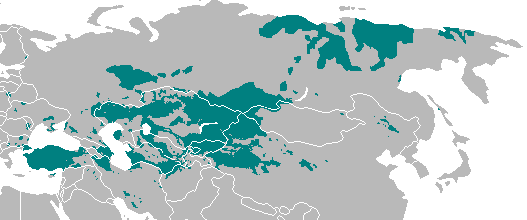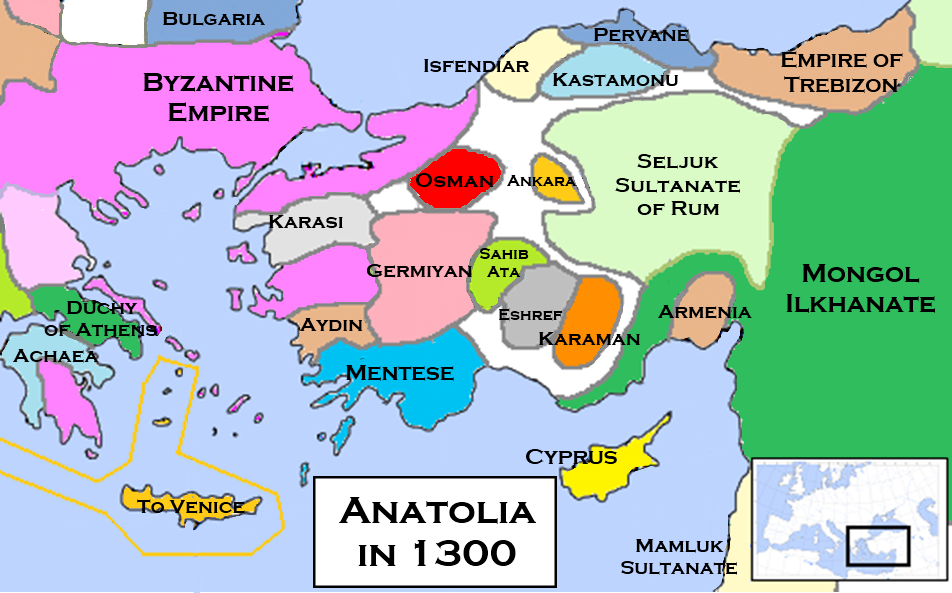|
Colin Imber
Colin Imber is a lecturer in Turkish studies at Manchester University, UK. He completed his Oriental studies at Cambridge University, where he defended his doctorate on „The Ottoman Fleet in the Age of Sultan Suleiman I (1520-1566)”. His research interest is focused on the history of the Ottoman Empire until the 17th century and on Islamic law, in particular on the system of Ottoman law, until the 17th century. He is considered as "perhaps the leading, and...certainly the most productive, of the painfully few Ottoman historians currently working in British universities."https://reviews.history.ac.uk/review/431 He is noted for his opposition to Paul Wittek's "Ghaza thesis The Ghaza or Ghazi thesis (from ota, غزا, ''ġazā'', "holy war," or simply "raid") is a historical paradigm first formulated by Paul Wittek which has been used to interpret the nature of the Ottoman Empire during the earliest period of i ...". Publications * ''The Ottoman Empire 1300–1481 ... [...More Info...] [...Related Items...] OR: [Wikipedia] [Google] [Baidu] |
Turkish Studies
Turkology (or Turcology or Turkic studies) is a complex of humanities sciences studying languages, history, literature, folklore, culture, and ethnology of people speaking Turkic languages and Turkic peoples in chronological and comparative context. This includes ethnic groups from the Sakha in East Siberia to the Balkan Turks and the Gagauz in Moldova. History Ethnological information on Turkic tribes for the first time was systemized by the 11th-century Turkic philologist Mahmud al-Kashgari in the ''Dīwān ul-Lughat it-Turk'' (Dictionary of Turkic language). Multi-lingual dictionaries were compiled from the late 13th century for the practical application of participants in international trade and political life. One notable such dictionary is the '' Codex Cumanicus'', which contains information for Cuman, Persian, Latin, and German. There are also bilingual dictionaries for Kipchak and Armenian as well as Kipchak and Russuan. In the Middle Ages, Turkology was centred aro ... [...More Info...] [...Related Items...] OR: [Wikipedia] [Google] [Baidu] |
Living People
Related categories * :Year of birth missing (living people) / :Year of birth unknown * :Date of birth missing (living people) / :Date of birth unknown * :Place of birth missing (living people) / :Place of birth unknown * :Year of death missing / :Year of death unknown * :Date of death missing / :Date of death unknown * :Place of death missing / :Place of death unknown * :Missing middle or first names See also * :Dead people * :Template:L, which generates this category or death years, and birth year and sort keys. : {{DEFAULTSORT:Living people 21st-century people People by status ... [...More Info...] [...Related Items...] OR: [Wikipedia] [Google] [Baidu] |
Academics Of The University Of Manchester
An academy (Attic Greek: Ἀκαδήμεια; Koine Greek Ἀκαδημία) is an institution of secondary or tertiary higher learning (and generally also research or honorary membership). The name traces back to Plato's school of philosophy, founded approximately 385 BC at Akademia, a sanctuary of Athena, the goddess of wisdom and skill, north of Athens, Greece. Etymology The word comes from the ''Academy'' in ancient Greece, which derives from the Athenian hero, ''Akademos''. Outside the city walls of Athens, the gymnasium was made famous by Plato as a center of learning. The sacred space, dedicated to the goddess of wisdom, Athena, had formerly been an olive grove, hence the expression "the groves of Academe". In these gardens, the philosopher Plato conversed with followers. Plato developed his sessions into a method of teaching philosophy and in 387 BC, established what is known today as the Old Academy. By extension, ''academia'' has come to mean the acc ... [...More Info...] [...Related Items...] OR: [Wikipedia] [Google] [Baidu] |
Alumni Of The University Of Cambridge
Alumni (singular: alumnus (masculine) or alumna (feminine)) are former students of a school, college, or university who have either attended or graduated in some fashion from the institution. The feminine plural alumnae is sometimes used for groups of women. The word is Latin and means "one who is being (or has been) nourished". The term is not synonymous with "graduate"; one can be an alumnus without graduating ( Burt Reynolds, alumnus but not graduate of Florida State, is an example). The term is sometimes used to refer to a former employee or member of an organization, contributor, or inmate. Etymology The Latin noun ''alumnus'' means "foster son" or "pupil". It is derived from PIE ''*h₂el-'' (grow, nourish), and it is a variant of the Latin verb ''alere'' "to nourish".Merriam-Webster: alumnus .. Separate, but from the ... [...More Info...] [...Related Items...] OR: [Wikipedia] [Google] [Baidu] |
Scholars Of Ottoman History
A scholar is a person who pursues academic and intellectual activities, particularly academics who apply their intellectualism into expertise in an area of study. A scholar can also be an academic, who works as a professor, teacher, or researcher at a university. An academic usually holds an advanced degree or a terminal degree, such as a master's degree or a doctorate (PhD). Independent scholars, such as philosophers and public intellectuals, work outside of the academy, yet publish in academic journals and participate in scholarly public discussion. Definitions In contemporary English usage, the term ''scholar'' sometimes is equivalent to the term ''academic'', and describes a university-educated individual who has achieved intellectual mastery of an academic discipline, as instructor and as researcher. Moreover, before the establishment of universities, the term ''scholar'' identified and described an intellectual person whose primary occupation was professional research. In 18 ... [...More Info...] [...Related Items...] OR: [Wikipedia] [Google] [Baidu] |
British Orientalists
British may refer to: Peoples, culture, and language * British people, nationals or natives of the United Kingdom, British Overseas Territories, and Crown Dependencies. ** Britishness, the British identity and common culture * British English, the English language as spoken and written in the United Kingdom or, more broadly, throughout the British Isles * Celtic Britons, an ancient ethno-linguistic group * Brittonic languages, a branch of the Insular Celtic language family (formerly called British) ** Common Brittonic, an ancient language Other uses *'' Brit(ish)'', a 2018 memoir by Afua Hirsch *People or things associated with: ** Great Britain, an island ** United Kingdom, a sovereign state ** Kingdom of Great Britain (1707–1800) ** United Kingdom of Great Britain and Ireland (1801–1922) See also * Terminology of the British Isles * Alternative names for the British * English (other) * Britannic (other) * British Isles * Brit (other) * Briton ( ... [...More Info...] [...Related Items...] OR: [Wikipedia] [Google] [Baidu] |
Ghaza Thesis
The Ghaza or Ghazi thesis (from ota, غزا, ''ġazā'', "holy war," or simply "raid") is a historical paradigm first formulated by Paul Wittek which has been used to interpret the nature of the Ottoman Empire during the earliest period of its history, the fourteenth century, and its subsequent history. The thesis addresses the question of how the Ottomans were able to expand from a small principality on the frontier of the Byzantine Empire into a centralized, intercontinental empire. According to the Ghaza thesis, the Ottomans accomplished this by attracting recruits to fight for them in the name of Islamic holy war against the non-believers. Such a warrior was known in Ottoman Turkish as a '' ghazi'', and thus this thesis sees the early Ottoman state as a "Ghazi State," defined by an ideology of holy war. The Ghaza Thesis dominated early Ottoman historiography throughout much of the twentieth century before coming under increasing criticism beginning in the 1980s. Histori ... [...More Info...] [...Related Items...] OR: [Wikipedia] [Google] [Baidu] |
Manchester University
, mottoeng = Knowledge, Wisdom, Humanity , established = 2004 – University of Manchester Predecessor institutions: 1956 – UMIST (as university college; university 1994) 1904 – Victoria University of Manchester 1880 – Victoria University 1851 – Owens College 1824 – Manchester Mechanics' Institute , endowment = £242.2 million (2021) , budget = £1.10 billion (2020–21) , chancellor = Nazir Afzal (from August 2022) , head_label = President and vice-chancellor , head = Nancy Rothwell , academic_staff = 5,150 (2020) , total_staff = 12,920 (2021) , students = 40,485 (2021) , undergrad = () , postgrad = () , city = Manchester , country = England, United Kingdom , campus = Urban and suburban , colours = Manchester Purple Manchester Yellow , free_label = Scarf , free = , website = , logo = UniOfManchesterLogo.svg , affiliations = Universities Research Association Sutton 30 Russell Group EUA N8 Group NWUA ACU Universities UK The Unive ... [...More Info...] [...Related Items...] OR: [Wikipedia] [Google] [Baidu] |
Paul Wittek
Paul Wittek (11 January 1894, Baden bei Wien — 13 June 1978, Eastcote, Middlesex) was an Austrian Orientalist and historian. His 1938 thesis on the rise of the Ottoman Empire, known as the '' Ghazi thesis'', argues that the Ottoman's ''raison d'être'' was the expansion of Islam. Until the 1980s, his theory was the most influential and dominant explanation of the formation of the Ottoman Empire. Biography Wittek was conscripted at the outbreak of World War I as a reserve officer to an Austro-Hungarian artillery regiment. In October 1914, he suffered a head wound in Galicia and was taken to Vienna to recover. Subsequently, he served first on the Isonzo Front and in 1917 was drafted as a military adviser to the Ottoman Empire, where he was stationed in Istanbul and Syria until the war ended. During this time Wittek learned Ottoman Turkish and acquired the patronage of , the former German consul in Istanbul. After the war ended, Wittek returned to Vienna and continued his stud ... [...More Info...] [...Related Items...] OR: [Wikipedia] [Google] [Baidu] |
Ottoman Law
The Ottoman Empire was governed by different sets of laws during its existence. The '' Qanun'', sultanic law, co-existed with religious law (mainly the Hanafi school of Islamic jurisprudence). Legal administration in the Ottoman Empire was part of a larger scheme of balancing central and local authority. Ottoman power revolved crucially around the administration of the rights to land, which gave a space for the local authority develop the needs of the local millet. The jurisdictional complexity of the Ottoman Empire was aimed to permit the integration of culturally and religiously different groups. Legal system The Ottoman system had three court systems: one for Muslims, one for non-Muslims, involving appointed Jews and Christians ruling over their respective religious communities, and the "trade court". The codified administrative law was known as ''kanun'' and the ''ulema'' were permitted to invalidate secular provisions that contradicted the religious laws. In practice, howe ... [...More Info...] [...Related Items...] OR: [Wikipedia] [Google] [Baidu] |






